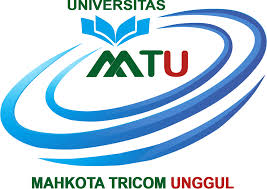The Assistance of The School Health Unit "UKS" Development to Optimize Health Among Elementary Students
DOI:
https://doi.org/10.55927/ajcs.v2i2.3161Keywords:
School-Age Children, Health Education, Optimizing School Health UnitAbstract
School health units (in Indonesian abbreviation as "UKS") in educational institutions can sustain healthy behavior and optimize student growth and development. The lack of UKS facilities and no particular UKS supervisors resulted in several health problems among the school members. From these problems, the solutions offered by this community service activity included: support for optimizing/revitalizing UKS functions and health education/counseling related to existing problems to support or improve the health of school members, especially students. This community service has been carried out by providing training and coaching for UKS cadres in the context of empowering UKS cadres to support health in schools. The training materials include first aid management, wound care, and healthy foods. This community service's outcomes include increasing partners' knowledge and skills.
Downloads
References
Agboola Sogunro, O. (2004). Efficacy of role‐playing pedagogy in training leaders: some reflections. Journal of Management Development, 23(4), 355–371.
Direktorat Sekolah Dasar. (2022). Usaha Kesehatan Sekolah (UKS). https://ditpsd.kemdikbud.go.id/hal/usaha-kesehatan-sekolah
Direktorat Sekolah Menengah Pertama. (2022). Peran dan Tanggung Jawab Kader Kesehatan Sekolah dalam Program Gizi UKS. https://ditsmp.kemdikbud.go.id/peran-dan-tanggung-jawab-kader-kesehatan-sekolah-dalam-program-gizi-uks/
Kerawalla, L., Luckin, R., Seljeflot, S., & Woolard, A. (2006). "Making it real": exploring the potential of augmented reality for teaching primary school science. Virtual Reality, 10, 163–174.
Logar, A., & Savec, V. F. (2011). Students' Hands-on Experimental Work vs Lecture Demonstration in Teaching Elementary School Chemistry. Acta Chimica Slovenica, 58(4).
Spencer, S., Drescher, T., Sears, J., Scruggs, A. F., & Schreffler, J. (2019). Comparing the efficacy of virtual simulation to traditional classroom role-play. Journal of Educational Computing Research, 57(7), 1772–1785.
Zimmerman, B. J., & Jaffe, A. (1977). Teaching through demonstration: The effects of structuring, imitation, and age. Journal of Educational Psychology, 69(6), 773.
Downloads
Published
How to Cite
Issue
Section
License
Copyright (c) 2023 Henik Tri Rahayu, Anis Ika Nur Rohmah

This work is licensed under a Creative Commons Attribution 4.0 International License.












.png)


















